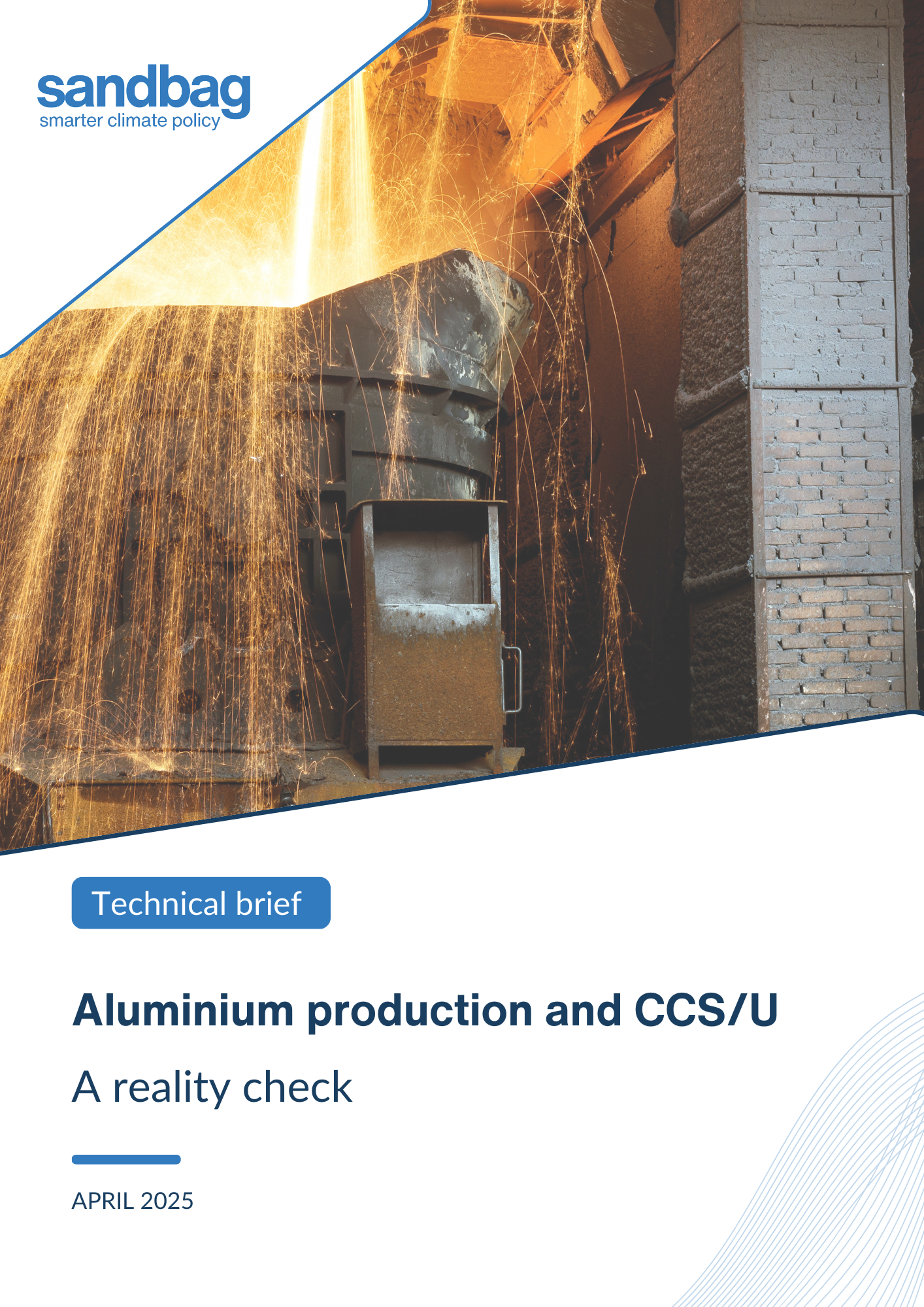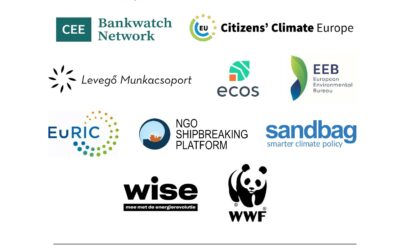The EU’s aluminium industry contributes around 2% of total industrial emissions, driven mainly by energy-intensive refining and smelting processes.
This policy brief explores why Carbon Capture and Utilisation (CCS/U) is unlikely to play a significant role in reducing these emissions — and what alternative pathways industry and policymakers should prioritise instead.

About the technical brief
Following on from our assessment of CCS/U in the iron and steel sector, we conduct another sectoral deep dive into the relevance of CCS/U, this time focusing on aluminium production.
We find that CCS/U is unlikely to play a significant role in decarbonising aluminium production. In both alumina refining and aluminium smelting, the nature and distribution of CO2 emissions present significant technical and economic barriers to widespread CCS/U deployment.
This technical brief highlights more practical and scalable pathways:
- Fuel switching & energy recovery is expected to slash alumina refinery emissions
- Inert anodes are a breakthrough technology to eliminate smelting emissions at the source
- Increasing circularity to reduce demand for primary aluminium and strengthen industrial resilience
- The analysis finds how Europe’s aluminium sector can cut emissions and stay globally competitive — without CCS/U.
Key findings
Alumina refinery emissions can be tackled through fuel switching.
Electrification and energy recovery can reduce refining emissions close to zero well before 2050.
Smelting emissions are hard to capture — and better options exist.
Inert anodes, now nearing commercial deployment, provide a long-term solution that eliminates process CO₂ emissions entirely.
Maximising circularity will be essential.
Secondary aluminium production uses just 5% of the energy of primary aluminium production, and must be maximised in Europe to reap economic as well as environmental benefits.
To deliver real emissions reductions in aluminium production, policy frameworks and investment should focus on:
- Maturing technologies for electrifying refinery processes
- Commercialising low carbon smelting technologies like inert anodes
- Maximising aluminium recycling within Europe
Read the full technical brief to learn more.
Photo by gyn9038 from GettyImages
Related publications
July 16th 2024
More on the Aluminium
From Niche to Mainstream: Shaping Demand for Green Steel
This report on the demand for green steel examines the impact of steel production using low-carbon...
Update of the EU ETS free allocation rules: Polluting for free during a climate crisis
In this joint op-ed, first featured in Carbon Pulse, Sandbag policy officer Aymeric Amand and...
European Commission lets recycled steel down in regulation proposal
Sandbag and 12 other organisations – representing important environmental NGOs, think tanks and...



